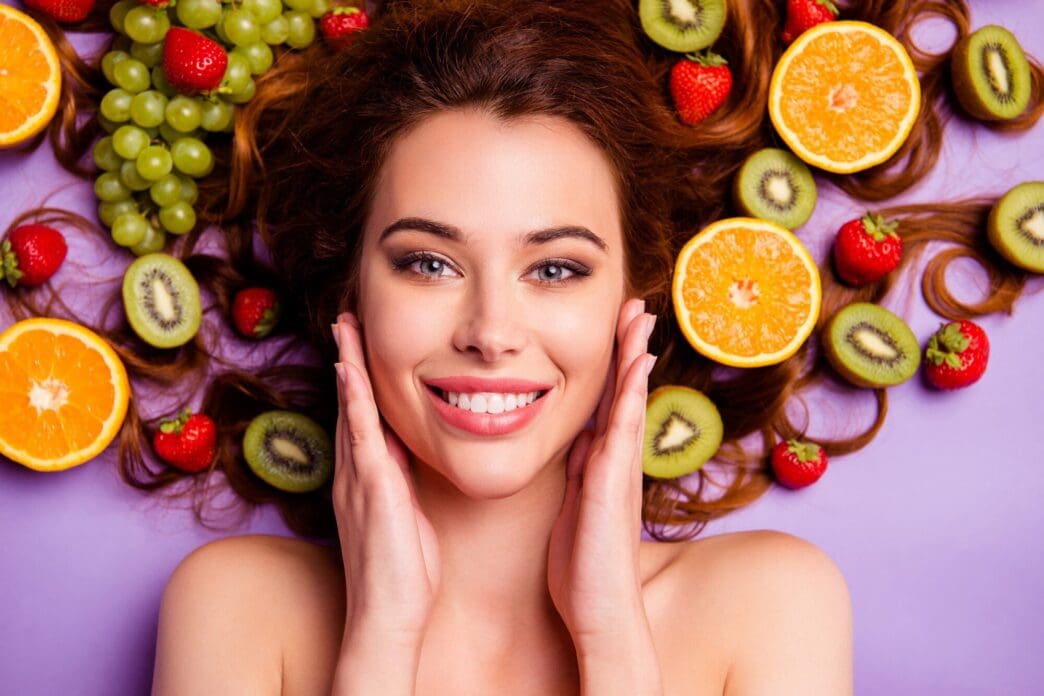A Quick Takeaway
The Story Behind the Trend
How to Make It Work for You
The Community View
Achieving radiant, healthy skin isn’t solely about topical treatments; it fundamentally begins from within, with the foods we consume daily. Your diet plays a pivotal role in nourishing your integumentary system—the complex network of skin, hair, and nails—providing the essential building blocks and protective compounds needed to maintain its integrity, function, and vibrant appearance. By prioritizing specific nutrient-dense foods, you can actively support your skin’s natural defenses, enhance its repair mechanisms, and unlock a glow that reflects true inner health, making dietary choices a cornerstone of any effective skincare regimen.
Understanding the Integumentary System
The integumentary system is the largest organ system in the body, serving as the first line of defense against environmental aggressors. Beyond its aesthetic role, your skin acts as a protective barrier, regulates body temperature, synthesizes vitamin D, and houses sensory receptors. Healthy hair and strong nails are also indicators of a well-nourished system, reflecting overall physiological balance.
This intricate system is constantly regenerating, shedding old cells and producing new ones. This continuous renewal process demands a steady supply of specific nutrients. Without adequate nutritional support, the skin can become dry, dull, prone to breakouts, and more susceptible to damage and premature aging.
The Nutritional Blueprint for Skin Health
Just as a house needs quality materials for construction, your skin requires a diverse array of vitamins, minerals, proteins, and fats to thrive. These nutrients work synergistically to support collagen production, protect against oxidative stress, maintain hydration, and facilitate cell repair. A balanced diet rich in whole, unprocessed foods is the most effective way to deliver these vital components directly to your skin cells.
Focusing on a variety of colors and food groups ensures a broad spectrum of beneficial compounds. This holistic approach not only benefits your skin but also contributes to your overall health and well-being. Let’s delve into the specific nutrients and their powerful food sources that are essential for a healthy, radiant complexion.
Key Nutrients and Their Food Sources for Radiant Skin
Antioxidants: Your Skin’s Bodyguards
Antioxidants are crucial for combating free radicals, unstable molecules that can damage skin cells and accelerate aging. They protect against environmental stressors like UV radiation and pollution, which contribute to wrinkles and loss of elasticity. Incorporating a wide range of antioxidant-rich foods is paramount for maintaining youthful and resilient skin.
Vitamin C
This powerful antioxidant is vital for collagen synthesis, the protein that provides skin with its structure and elasticity. Vitamin C also helps lighten hyperpigmentation and protects against sun damage. Excellent sources include citrus fruits like oranges and grapefruits, berries, bell peppers, kiwi, and broccoli.
Vitamin E
Working in conjunction with Vitamin C, Vitamin E is a fat-soluble antioxidant that protects cell membranes from oxidative damage. It also helps maintain skin moisture and can aid in wound healing. Find it in nuts (almonds, walnuts), seeds (sunflower, pumpkin), avocados, and leafy green vegetables.
Beta-Carotene (Pro-Vitamin A)
Converted to Vitamin A in the body, beta-carotene acts as an antioxidant and contributes to skin cell turnover, promoting a smoother texture. It also offers some natural sun protection. Carrots, sweet potatoes, pumpkin, spinach, and kale are rich sources of this orange pigment.
Selenium
This trace mineral is another potent antioxidant that helps protect skin from UV damage and inflammation. It also plays a role in maintaining skin elasticity. Brazil nuts are an exceptional source, along with seafood, whole grains, and mushrooms.
Healthy Fats: The Moisture Barrier Builders
Healthy fats are essential for maintaining the skin’s lipid barrier, which locks in moisture and keeps irritants out. They also possess anti-inflammatory properties, crucial for calming skin conditions like acne and eczema.
Omega-3 Fatty Acids
These essential fats are renowned for their anti-inflammatory effects, which can reduce redness and irritation in the skin. They also help strengthen cell membranes, improving skin hydration and suppleness. Fatty fish like salmon, mackerel, and sardines are top sources, as are flaxseeds, chia seeds, and walnuts.
Protein: The Structural Support
Protein is fundamental for the repair and regeneration of skin cells, and it provides the building blocks for collagen and elastin. Adequate protein intake ensures your skin can maintain its firmness and elasticity, preventing sagging.
Lean meats, poultry, fish, eggs, legumes, tofu, and quinoa are all excellent sources of complete proteins. Ensuring a consistent intake supports the continuous renewal process of your skin, hair, and nails.
Zinc: The Healer and Regulator
Zinc is a critical mineral involved in wound healing, immune function, and reducing inflammation. It also plays a role in regulating oil production in the skin, making it beneficial for those prone to acne. Oysters, beef, pumpkin seeds, lentils, and chickpeas are good dietary sources of zinc.
Water: The Ultimate Hydrator
While not a food, adequate water intake is paramount for skin health. Hydration from within keeps skin cells plump, improves elasticity, and helps flush out toxins. Aim for at least eight glasses of water daily, and even more if you’re active or in a dry environment.
Beyond Specific Foods: A Holistic Approach
While diet is foundational, a truly radiant complexion also benefits from other healthy lifestyle choices. Prioritizing quality sleep allows skin cells to repair and regenerate effectively. Managing stress through mindfulness or exercise can prevent stress-induced breakouts and dullness. Furthermore, consistent sun protection, even on cloudy days, is non-negotiable for preventing premature aging and skin damage, complementing your internal nutritional efforts.
Embracing a diet rich in antioxidants, healthy fats, quality proteins, and essential minerals is a powerful strategy for nurturing your integumentary system from the inside out. By making conscious food choices, you provide your skin with the ultimate toolkit to protect itself, repair damage, and maintain a vibrant, healthy glow. Remember, what you put into your body is just as important as what you put on it when it comes to achieving truly radiant skin.







